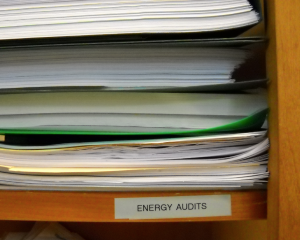Impact investing is a rapidly growing investment strategy and is forcing REITs and private equity firms to increase their efforts on Environmental, Social and Governance (ESG) programs. Broadly speaking, impact investing focuses on investing in companies whose services or products generate measurable, positive social or environmental impact along with financial return.
Read More
Topics:
Energy Efficiency,
Energy Managed Services,
Rebates,
Energy Cost,
Water Conservation,
Energy Benchmarking,
Hospitality,
Renewable Energy
Facing ever-fluctuating energy prices, aging electrical grids and increasing concern for the environment, more businesses and facilities are turning to distributed generation as a key component of a successful overall energy strategy.
Read More
Topics:
Energy Efficiency,
Energy Managed Services,
EVs,
Measurement and Verification,
Combined Heat & Power,
Power Purchase Agreement,
Energy Cost,
Renewable Energy
Friday’s news hit Bloomberg at 9:06am. Within minutes my 14 year-old daughter walked in with,”Hey Dad, did you hear Amazon bought Whole Foods for $13.7 billion?” There’s no Bloomberg terminal in her room, just an iPhone feed.
Read More
Topics:
Energy Efficiency,
Refrigeration
Last week I attended EDF/Citibank’s 3rd Energy Efficiency Financeconference in NYC. Since their inaugural event a few years ago this conference has always provided a good gauge on the market’s rate of progress.
Read More
Topics:
Energy Efficiency,
On Bill Finance,
PACE
A few weeks ago one of our thoughtful engineers sent me a note wondering aloud about the correlation of sustainability-minded companies to above average stock price performance. Like others with an environmental bias he hoped to feel good about buying shares in publicly traded, relatively greener companies while still making a strong financial return (and further driving down the cost of capital for these same companies.)
Read More
Topics:
Energy Efficiency
Harvard economist Robert Stavins recently published a study assessing the impact when US cities require their real estate owners to perform periodic energy analysis on their buildings. As Boston considers passing its own energy benchmarking ordinance, Stavin studied other existing programs and concluded “there is currently no real evidence that these mandatory programs lead to any changes whatsoever in energy use.’’
Read More
Topics:
Energy Efficiency,
Energy Benchmarking
Last week I participated in a day long energy efficiency finance workshop, hosted and co-produced by Bloomberg’s New Energy Finance Group and the Environmental Defense Fund. Held at Bloomberg’s hip and upbeat headquarters, it had the feel of an investor conference, although most people in the room had yet to make one….
Read More
Topics:
Energy Efficiency,
CESA,
On Bill Finance,
energy efficiency finance,
PACE,
performance contracting,
energy services agreement
There are two sides to a company’s energy profile – consumption of energy by its facility assets (HVAC, lighting, etc.) and it’s purchase of utility services (electricity, gas, etc.) In practice energy engineering teams (including ours) spend most of their time identifying opportunities for energy efficient equipment upgrades or behavior changes. Purchased utility services are usually taken as a given, with utility bills being studied for historical inflation rates, usage patterns and demand charges.
Read More
Topics:
Energy Efficiency,
Power Purchase Agreement,
Behavior Change

For years large ESCO’s (Johnson Controls, Siemens, Honeywell, etc.) have been performing Level Three Investment Grade Audits (IGAs), which are required for MUSH/Federal performance contracts. Their audits produce a detailed energy savings spreadsheet which makes it possible for a tax-exempt entity to issue bonds which pay for the retrofits, all leveraging the ESCO’s “guarantee” for the projected savings.
Read More
Topics:
Energy Efficiency,
level 3 energy audit,
energy audit,
level 2 energy audit,
Enterprise Smart Grid
 Jim Rogers from Duke Energy famously promotes efficiency as the “5th Fuel” in the world-wide portfolio of energy production. He echoes the consensus that renewable energy requires massive incentives to make it financially viable, while energy efficiency does not, and hence these opportunities should be more actively addressed.
Jim Rogers from Duke Energy famously promotes efficiency as the “5th Fuel” in the world-wide portfolio of energy production. He echoes the consensus that renewable energy requires massive incentives to make it financially viable, while energy efficiency does not, and hence these opportunities should be more actively addressed.
Read More
Topics:
Energy Efficiency,
utility rebates,
Rebates,
energy efficiency incentives




 Jim Rogers from Duke Energy
Jim Rogers from Duke Energy